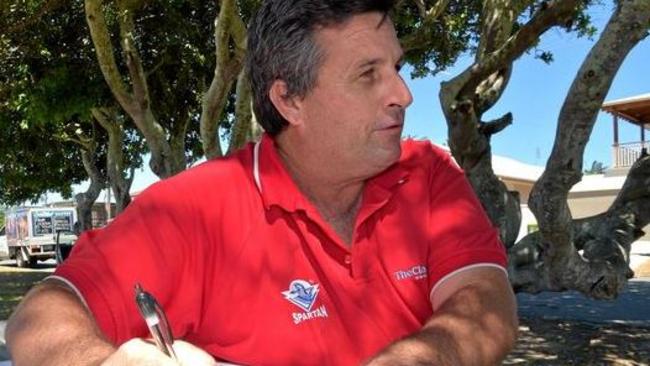Commercial anglers hit back at government monitoring plan
A State Government call to monitor fishing vessels has sparked a war on the water.

QLD News
Don't miss out on the headlines from QLD News. Followed categories will be added to My News.
COMMERCIAL line fishers say a plan to track their every movement on the water like they were paedophiles with ankle bracelets would cost them hard-won information and give away their competitive advantage.
The Queensland Government was pushing to implement vessel monitoring systems by 2020 that would electronically record where all commercial fishers were operating at any time.
Installation on net, line and crab boats by the end of 2018 was a priority.
Michael Thompson, one of only nine commercial line fishers still operating from Caloundra to Noosa, told The Sunshine Coast Daily that existing government electronic platforms were not secure.
He and colleagues fear fish grounds they have identified and harvested sustainably over decades would be exposed.
“We invest hours searching out (a new fish spot),” Mr Thompson said.
“That’s why we are competitive. And we don’t fish a spot until it’s dry.
“They want to track us like paedophiles with ankle bracelets.”
Fisheries Minister Mark Furner said the government respected the privacy of commercial fishers’ data and had not disclosed private location information in the almost 15 years it had been tracking trawlers.
Mr Furner said there was a need for accurate data on the publicly owned resource for the fishery to remain sustainable.
He said the government’s Sustainable Fishing Strategy set out its reform agenda for the next decade and would address the commercial, recreational, charter and indigenous fishing sectors.
“There is currently considerable community discussion about this part of the strategy and Fisheries Queensland are currently undertaking regional meetings with fishers seeking feedback on the proposed rules for vessel tracking,” Mr Furner said.
“Expanding vessel tracking across the entire commercial fishing fleet will assist in improving compliance and validating data provided by fishers through logbooks.
“Vessel tracking is also a useful tool for fishery management.”
Mr Thompson, who served on the Queensland Seafood Industry Association scientific committee for four years, said the Government was looking for someone to blame for appalling wetland management which had impacted the marine ecosystem and reduced stock.
He said the Coast’s line fishermen, who supplied only local restaurants and fish shops, were under enormous pressure to survive.
If they didn’t, and new blood didn’t take up licences, the supply of fresh seafood for locals would dry up.
“Development across southeast Queensland has impacted low lying grasslands where prawn larvae and fish fry breed,” Mr Thompson said.
“All the low lying areas are helicopter-sprayed for mossies which are a critical food source.
“If this goes ahead Queensland Fisheries will have every piece of personal business data that will go into a computer that won’t be secure,” Mr Thompson said.
“That will be the end of our businesses.”
Commercial fisher of 40 years Bill Gilliland agrees wetlands have been poorly managed, but said not all of his colleagues were honest about their catches.
He said fish stock were a community resource that required sharing and careful stewardship.
The holder of a Spanish mackerel licence that allows him to fish the entire east coast, Mr Gilliland said a tag system that applied to both commercial and recreational fishers would be fairer.
Fellow fisher 70-year-old Bruce Horton said he had already seen how the existing Queensland Fisheries’ Fishnet Secure system was not secure.
Commercial fishers operate under strict quota licences and were required to record each fish caught. Before they enter port they were required to give notice where they would dock and remain there for one hour to allow fisheries officials to check the number of fish on board against their records.
“I think they think we are all tuna long line operators,” Mr Horton said. “We have to fish the same way as recreational anglers.”
The first 28 snapper they catch each season simply pays for the quota licence. Then there is a $700 annual fee to the Australian Maritime Safety Authority and $400 to Safe Food Queensland for the right to sell as a primary producer.
“We’re getting shafted,” Mr Horton said. “There’s no young blokes coming in.
“The recreational sector just grows and takes more and we pay.”


